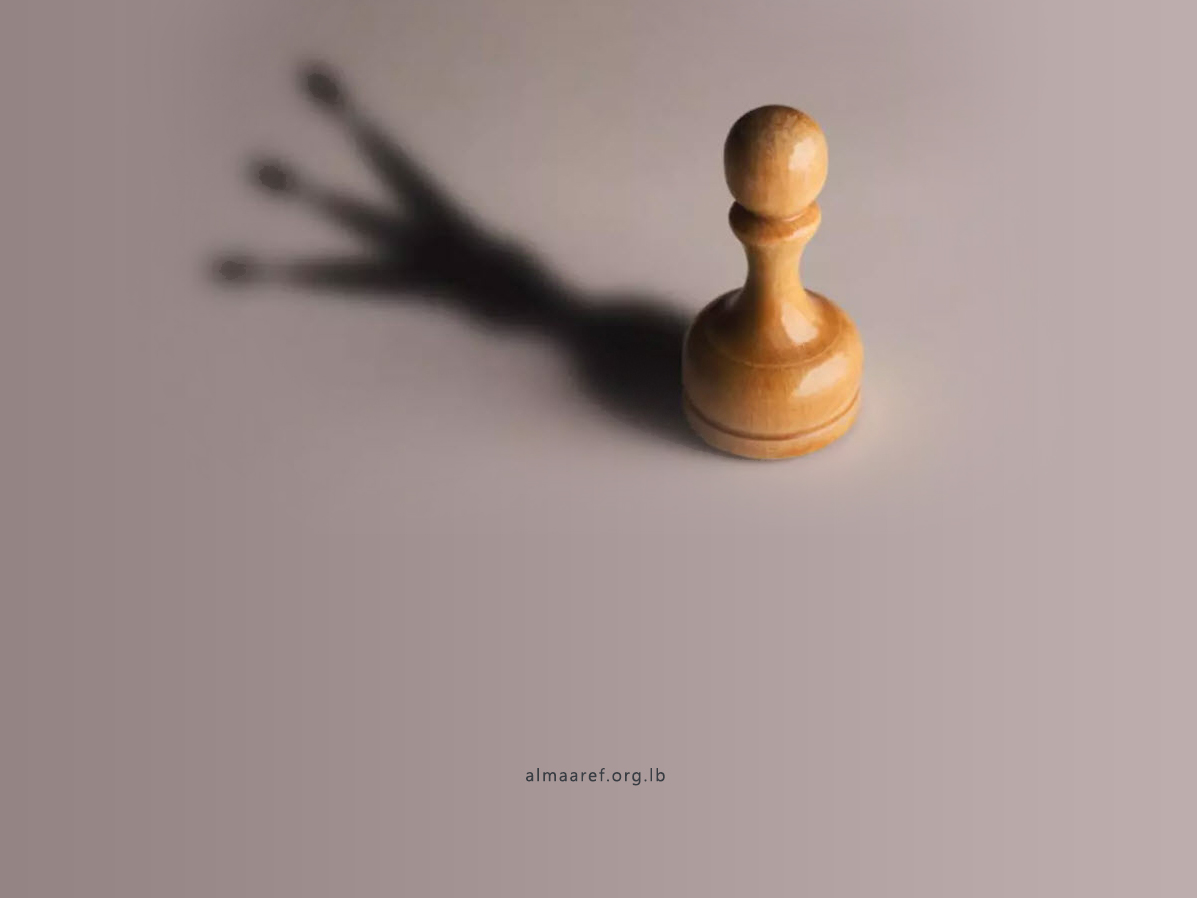The word akhlaq is the plural for the word khulq which means disposition. "Disposition" is that faculty (malakah) of the soul which is the source of all those activities that man performs spontaneously without thinking about them. Malakah is a property of the soul which comes into existence through exercise and repetitive practice and is not easily destroyed.
A particular disposition (malakah) may appear in human beings because of one of the following reasons:
1- Natural and physical make up: It is observed that some people are patient while others are touchy and nervous. Some are easily disturbed and saddened while others show greater resistance and resilience.
2- Habit: Which is formed because of continual repetition of certain acts and leads to the emergence of a certain disposition.
3- Practice and conscious effort: Which if continued long enough will eventually lead to the formation of a disposition.
Even though the physical make-up of an individual produces certain dispositions in him, it is by no means true that man has no choice in the matter and is absolutely compelled to abide by the dictates of his physical make-up. On the contrary, since man has the power to choose, he can overcome the dictates of his physical nature through practice and effort, and can acquire the disposition of his choice.
Of course, it should be admitted that those dispositions which are caused by the mental faculties such as intelligence, memory, mental agility, and the like, are not alterable. All other dispositions, however, may be changed according to man's will. Man can control his lust, anger and other emotions and desires, and channel them to edify himself and propel himself along the path of perfection and wisdom.
When we speak of man's capacity to bring about changes in his dispositions, we do not mean that man should destroy his instincts of reproduction or self-preservation. Man could not exist without these instincts. What we mean is that one should avoid going to either extremes in regard to them, and maintain a condition of balance and moderation so that they may perform their functions properly. Just as the seed of a date grows into a fruitful tree through proper care, or a wild horse is trained to serve his master, or a dog is trained to be the lifelong friend and a help to man, so also can man attain perfection and wisdom through self-discipline and intelligent perseverance.
Human perfection has many levels. The greater the amount of self-discipline and effort on the part of the individual, the higher the level of perfection that he would attain. In other words, he stands between two extreme points, the lowest of which is below the level of beasts and the highest of which surpasses even the high station of angels. The human movement between these two extremes is discussed by ilm al-akhlaq or the science of ethics. It is the goal of ethics to raise and guide man from the lowest animal state to that exalted position superior to that of the angels.
The importance of ethics is thus revealed. And it is because of the reasons mentioned above that ethics is considered to be the most exalted and valuable of sciences, since the worth of any science is directly related to the worth of the subject with which it is concerned, and since the subject of the science of ethics is man and the means through which he can attain perfection. Moreover, we know that man is the noblest of creatures, the ultimate purpose of whose existence is to attain perfection, therefore, it follows that ethics is the noblest of all sciences.
In fact, in the past, the philosophers did not consider any or the other fields of learning to be truly independent sciences. They believed that without the science of ethics and spiritual purification, mastery over any other science is not only devoid of any value, but it would in fact lead to the obstruction of insight and ultimate destruction of those who pursue it. That is why it has been said that which means, knowledge is the thickest of veils', which prevents man from seeing the real nature of things.
Souls Purification and Adornment
Moral virtues in man gain him eternal happiness, while moral corruption leads him to everlasting wretchedness. It is therefore necessary for man to purge and purify himself of all evil traits of character and adorn his soul with all forms of ethical and moral virtues. Moreover, without having cleansed oneself of all evil habits, it would be impossible to nourish and develop moral virtues in oneself. The human soul can be compared to a mirror in this regard. If we wish to see something beautiful reflected in a mirror, we must first cleanse the mirror, so that dust and dirt do not disfigure the reflection. Any attempt to obey God's commands would be fruitful and successful only when one has purified himself of evil habits and tendencies, otherwise, it would be like putting on jewels on a dirty and unwashed body. When self-purification has been completed and one is completely rid of all evil habits of thought, speech and action, then the soul is ready to receive the unlimited grace of God. Such reception is the ultimate reason for which man was created.
In truth, God's grace and the Divine mysteries are always accessible to man. It is man that must purify his soul and develop within himself the necessary receptivity to benefit from the infinite grace of his Creator.
There is a tradition of the Holy Prophet (peace be upon him and his household) which says:
The angels do not enter a house in which there is a dog.
How is it possible, then, for the rays of God's grace and Divine illumination to enter a heart filled to the brim with immoral, selfish, and bestial desires? The hadith of the Prophet (peace be upon him and his household): (meaning, "My religion is based on cleanliness"), does not refer to outward cleanliness alone, more than that it alludes to the inner purity of the soul.
In order to attain ultimate and final perfection, it is necessary to traverse the path of struggle against selfish lusts and immoral tendencies which may exist within the soul, and thus to prepare the soul to receive the grace of God. If man sets foot on the path of self-purification, God shall come to his aid and guide him along the path:
﴾And [as for] those who struggle in Our cause, surely We guide them in Our ways﴿ (29:89)
Faculties of the Soul: Their Effects and Characteristics
At the time of its creation, the soul of man is like a clean tablet, devoid of all faculties (traits), whether good or evil. As one progresses through life, he develops faculties which are directly related to the way he lives, thinks, and acts. The speech and deeds of man, when repeated over a long period of time, produce a lasting effect in the soul which is known as a "faculty". This faculty penetrates the soul and becomes the origin and cause of man's actions. In other words, the human soul becomes used to these faculties, establishes a union with it, and determines the human being's direction in accordance with their dictates. If these faculties (malakat) are noble, they manifest themselves as moral and wise speech and behaviour in man. If, on the contrary, they are evil and base, they are manifested through immoral and perverse behaviour.
These very faculties play the decisive role in determining the fate of the individual in the eternal world of the Hereafter. The soul shall be accompanied there by the same faculties that it was associated and united with in this world. If these faculties are virtuous, the soul shall have eternal bliss, and if they were wicked ones, it shall face eternal damnation.
This matter of malakat provides the answer to those who say how could the Compassionate and Merciful God condemn an individual to eternal damnation for a sin committed in a short span of time. The thing to keep in mind is that when a sin committed repeatedly leads to the development of a faculty in man, since this evil faculty is incorporated in the soul, the punishment and torture which accompany it will also afflict the soul. The Quran says:
﴾And every man-We have fastened to him his bird of omen upon his neck and We shall bring forth for him, on the Day of Resurrection, a book he shall find spread wide open. Read thy book! Thy soul suffices thee this day as a reckoner against thee﴿.( 17:13-14)
And
﴾And the book shall be set in place, and thou wilt see the sinners fearful at what is in it, and saying, Alas for us how is it with this Book, that it leaves nothing behind, small or great, but it has numbered it?' And they shall find all they wrought present, and thy Lord shall not wrong anyone﴿. (18:49)
And
﴾The day every soul shall find what it has done of good brought forward, and what it has done of evil, it will wish if there were only a far space between it and its deeds﴿. (3:29)
The Soul and Its Powers
The soul (nafs) is that heavenly essence which employs the body and uses its various organs to attain its goals and purposes. The soul has also other names as spirit (ruh), intelligence (aql), and heart (qalb) although these terms have other usages as well.
The most important faculties of the soul are:
1- The power of intelligence (al-quwwah al-aqliyyah)-angelic.
2- The power of anger (al-quwwah al-ghadabiyyah)-ferocious.
3- The power of desire (al-quwwah al-shahwiyyah)-animalistic.
4- The power of imagination (al-quwwah al-wahmiyyah)-demoniac.
The function and value of every one of these powers or forces of the soul is commonly well understood. If man did not have the power of reason, it would have been impossible for him to distinguish between good and evil, right and wrong, true and false. If he did not possess the faculty of anger, he could not defend himself against attack and aggression. If the force of sexual attraction and desire did not exist in man, the continued existence of the human species would be endangered. And finally, if man lacked the power of imagination, he could not visualise universals or particulars, and he would be unable to make any inferences based on them.
With this explanation, the characteristics mentioned for each of the four human faculties are made clear and comprehensible. Reason is the guiding angel of man. The power of anger and fierceness in man brings about ferocity and violence in him. His power of desire and passion propels him towards immorality and licentiousness. And the imaginative power in man provides the preliminary material for the formation of demoniac schemes, plots and machinations. Now, if the faculty of reason is put in control of the other faculties, it keeps them in their rightful place and moderates their excesses, they will work for the welfare of man and shall perform useful functions, otherwise, nothing except evil and mischief will come of them.
The relationships of these four faculties of the human soul to one another are described in the following allegorical manner. Imagine a traveller on horseback accompanied by a dog and a man who is a spy for the bandits. The mounted traveller represents reason. The mount represents desire and passion. The dog represents the power of anger and fierceness. And the spy represents the imaginative power. If the traveller just mentioned is successful in controlling his mount, the dog, and the spy, and in maintaining his authority over them, he shall arrive at his destination safely, otherwise, he will be destroyed. The human soul is thus a stage or a battlefield on which there is a continuous struggle between these four powers. What would be the dominant characteristic and nature of an individual's soul is entirely dependent on the outcome of this struggle. In other words, whichever of the four powers emerges victorious, it shall determine the character and inclination of the soul. That is why some souls are angelic, some are animalistic and bestials and still others are demoniac.
In a hadith from Imam Ali (A), he is related as saying:
Surely God has characterized the angels by intellect without sexual desire and anger, and the animals with anger and desire without reason. He exalted man by bestowing upon him all of these qualities. Accordingly, if man's reason dominates his desire and ferocity, he rises to a station above that of the angels, because this station is attained by man in spite of the existence of hurdles which do not vex the angels.
Pleasures and Pains
Pleasure is a condition experienced by the soul when it perceives something harmonious with its own nature. Pain and suffering is occasioned when the soul comes into contact with things which are in disharmony with its nature. Since the powers of the soul are four in number, it follows that the pleasures and pains of the soul must also be divided into four categories, each corresponding to one of the four faculties.
Pleasure of the reasoning faculty lies in gaining knowledge about the real nature of things, and its pain lies in ignorance and deprivation from such knowledge.
Pleasure of the faculty of anger and fierceness lies in the feeling of being victorious and in satisfaction at overcoming an enemy and taking one's revenge. Its pain lies in the feeling of being overpowered and defeated.
Delight of the faculty of desire and passion is enjoyment of foods, drinks, and sexual association while its pain lies in denial of such experiences.
Pleasure of the imaginative faculty lies in the visualization of particulars which lead to the appearance of carnal desires and demonic tendencies, while its pain lies in the insufficiency and inadequacy of these visions.
The strongest and the purest of pleasures is the pleasure experienced by the faculty of reason. This is a form of pleasure which is both inherent and natural to man. It is a pleasure which is constant, not subject to the changing experiences in his daily life.
It is unlike the other pleasures, which belonging to the body and being animalistic, are transitory in nature and without any lasting value. These animal pleasures are in fact so low and trivial that man is ashamed of them and tries to conceal them. If it were to be said of a man that he derives great pleasure from eating, drinking, and engaging in sexual intercourse, he shall be ashamed and upset about it. While, if such activities and pleasures were becoming for man, not only would he not be ashamed of them, he would in fact be glad if such a matter were published widely and be proud of it.
We can conclude, then, that the kind of pleasure that is becoming for man and could be said to be really gratifying, and not be such in appearance alone, is the kind of pleasure experienced by the soul's reasoning faculty. This sort of pleasure has many degrees, the highest of which is experienced in nearness to God. This most sublime of pleasures is attained through love and knowledge of God, and acquired through abiding effort to be ever nearer to Him. When one's whole effort is directed towards attaining this real and lasting pleasure, sensual pleasures will be overshadowed, they shall take their proper place in man's life, being pursued in moderation.
Goodness and Happiness
The ultimate aim of the purification of the soul and aquirement of a moral and ethical character is to attain felicity and happiness. The most consummate felicity and happiness for man is to be the embodiment and manifestation of Divine attributes and characteristics. The soul of a truly happy man is developed with the knowledge and the love of God, it is illuminated by the effulgence emanating from the God head. When that happens, nothing but beauty shall emanate from him, since beauty can emanate only from what is beautiful.
It should be kept in mind that true felicity can not be attained or retained unless all the faculties and powers of the soul are purified and reformed. By reforming some faculties of the soul, or all of them, for a short period of time, happiness will not be attained. It is similar to physical health. A body can be said to be healthy only when all its limbs and organs are healthy. Therefore, the individual who seeks to attain ultimate and perfect happiness, must free himself or herself from the clutches of demonic and animal forces and tendencies and step on the ladder of ascension to the higher realms.




















